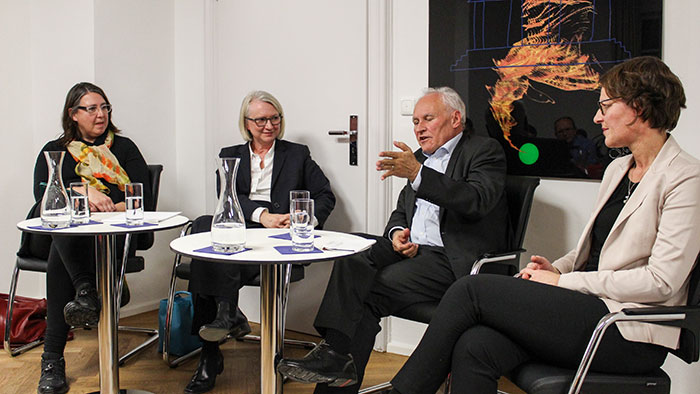How can Policy consulting work?
Silvia Liebrich (Süddeutsche Zeitung) posed this question during a panel discussion at the LMU Munich’s Center for Advanced Studies (CAS), where representatives from academia, politics and public administration were asked to explore it together.
Monika Schnitzer, Economics Professor at LMU Munich and member of the International Doctorate Program "Evidence-Based Economics", shared with the audience her experience as a policy consultant. She is convinced that evidence-based policy advice that rests on a sound scientific foundation leads the way to better political decisions. However, successful policy consulting requires patience as it is often a long way until insights from frontier research are taken up by politics. Nonetheless, the scientific community must not simply leave policy consulting to the lobbyists.
Erwin Huber, former minister of state, was in turn often the recipient of policy consulting during his long career in politics. He regards the communication between science and politics as the primary source of difficulty in this context, asking “which politician has the time to read through a 300 page long report written in convoluted language?”
Despite these different perspectives, Monika Schnitzer and Erwin Huber agreed that public officials in the ministries and the administration are in a crucial position as they must process scientific results and present them so that politicians can act on them. Andrea Schneider, who works at the planning office of the German Federal Chancellery, shared her insights and experiences on these tasks, in particular from a federal initiative that aims to simplify bureaucratic procedures using scientific insights.
The audience gained new insights into the question of how policy consulting may work: “I found the discussion about how to establish a good balance between scientific precision and pragmatic feasibility in policy consulting especially interesting. This issue is very relevant because despite the fact that both sides pursue the same goal – effective public policy – it is often difficult to reconcile the different priorities.” Clarissa Kayser, doctoral student at LMU Munich.
Text: International Doctorate Program "Evidence-Based Economics“


